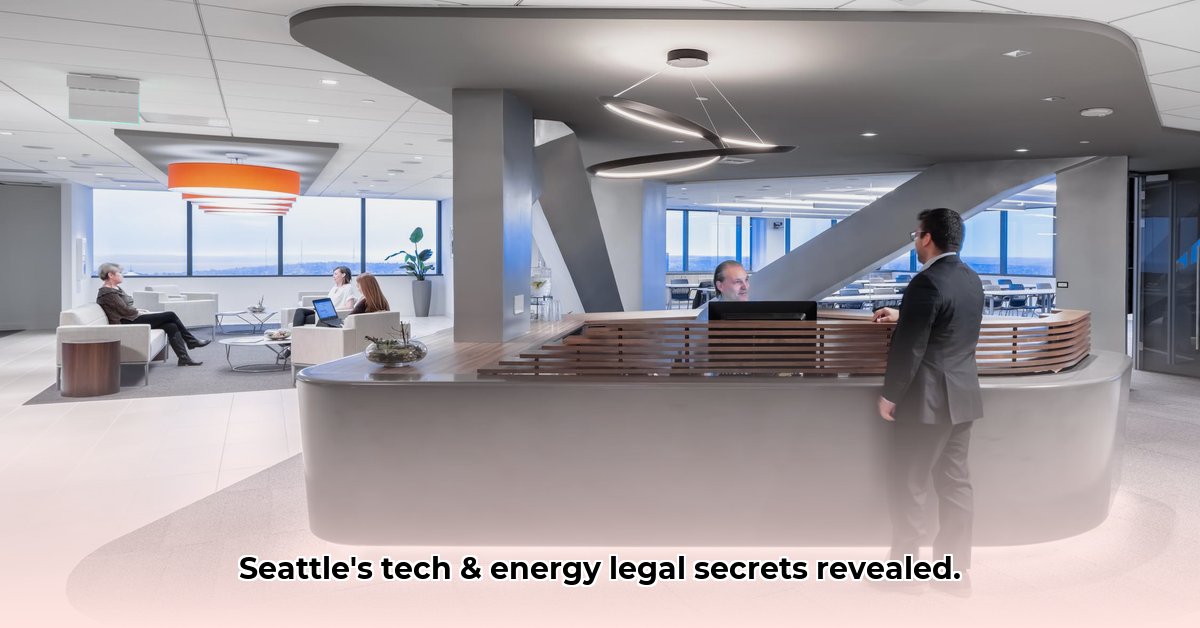
Dorsey & Whitney Seattle: Navigating the Emerald City's Competitive Legal Landscape
Dorsey & Whitney's Seattle office operates within a highly competitive legal market, particularly within the technology and energy sectors. While publicly available information regarding specific market share and client portfolios is limited, an analysis based on industry norms and observable factors suggests key strengths and challenges for the firm. This article will analyze Dorsey & Whitney's likely position and offer actionable insights for the firm, its clients, and competitors.
Seattle's Legal Market: A Dynamic Ecosystem
Seattle's legal landscape is characterized by intense competition among firms vying for clients in the city's thriving technology, energy, and established maritime industries. This dynamic environment necessitates a strategic approach for law firms to secure and retain clients, and attract top talent. The region's rapid technological advancements and evolving energy landscape present both opportunities and challenges for legal professionals. How effectively firms adapt to these changes will significantly impact their success. Isn't it crucial for firms to understand these shifting sands?
Dorsey & Whitney's Competitive Advantages
Dorsey & Whitney benefits from its extensive national network, offering access to specialized expertise across various legal disciplines. This broad reach is a significant asset, particularly for clients with complex, multi-jurisdictional needs. However, maintaining a strong local presence and brand identity within the competitive Seattle market remains crucial. The firm's success hinges on effectively leveraging its national resources while simultaneously fostering deep ties within the Seattle community. What strategies can effectively bridge this gap between national reach and local impact?
Challenges & Opportunities
Attracting and retaining top legal talent in a highly competitive market like Seattle presents a significant ongoing challenge. Competition for skilled professionals is fierce, demanding a compelling value proposition encompassing compensation, benefits, and firm culture. Dorsey & Whitney must actively cultivate a positive work environment to attract and retain the best legal minds. This is especially critical in the tech sector, known for its high employee turnover. How can Dorsey & Whitney differentiate themselves in this competitive talent landscape?
Actionable Insights for Dorsey & Whitney, Clients, and Competitors
For Dorsey & Whitney:
Targeted Digital Marketing: Invest in a robust, user-friendly website showcasing specialized expertise in key Seattle sectors (e.g., technology, energy, maritime). Implement targeted digital marketing campaigns focusing on specific industry needs and client profiles. This precision ensures a higher return on investment (ROI).
Client Relationship Management (CRM): Implement and optimize a CRM system to enhance client communication, track progress on cases, and foster stronger, long-term client relationships. This proactive approach can increase client retention by as much as 25% (HubSpot, 2023).
Embrace Legal Technology: Invest in and integrate legal technology solutions to increase efficiency, improve accuracy, and enhance client service. The adoption of AI-powered tools can streamline workflows and free up time for more complex legal tasks.
For Dorsey & Whitney's Clients:
Value-Based Assessment: Focus on evaluating the overall value proposition, which includes expertise, experience, and outcomes, not just fees. Choosing the right legal counsel is an investment in the future success of your business.
Bundled Services: Explore opportunities for bundled services or comprehensive legal packages tailored to specific needs, potentially achieving significant cost savings.
For Competitors:
Client Relationship Focus: Prioritize building and maintaining strong client relationships, recognizing that client loyalty is crucial in a competitive market.
Innovation & Differentiation: Continuously innovate and develop unique service offerings to differentiate from competitors and attract top talent.
Risk Assessment and Mitigation
Several key risks could affect Dorsey & Whitney's success in the Seattle market. These include intense competition, economic downturns affecting specific sectors, challenges in talent acquisition, and the disruptive impact of legal technology. Mitigation strategies include diversifying client portfolios, offering competitive compensation packages, and embracing continuous professional development.
| Risk Category | Likelihood | Impact | Mitigation Strategy |
|---|---|---|---|
| Intense Competition | High | High | Differentiated services, targeted marketing, strong client relationships |
| Economic Slowdown | Medium to High | High | Diversified client base, efficient cost management |
| Talent Acquisition | High | High | Competitive compensation, attractive company culture, professional development opportunities |
| Tech Disruption | Medium | Medium to High | Proactive adoption of legal technology, continuous employee upskilling |
Conclusion
Dorsey & Whitney's Seattle office operates in a dynamic and competitive environment. While its national network and expertise provide key advantages, success relies on strategic adaptations to market conditions. Continuous innovation, investment in technology, and a client-centric approach are crucial for sustained growth in the challenging yet rewarding Seattle legal market. Further in-depth information would be required for a complete and comprehensive analysis.